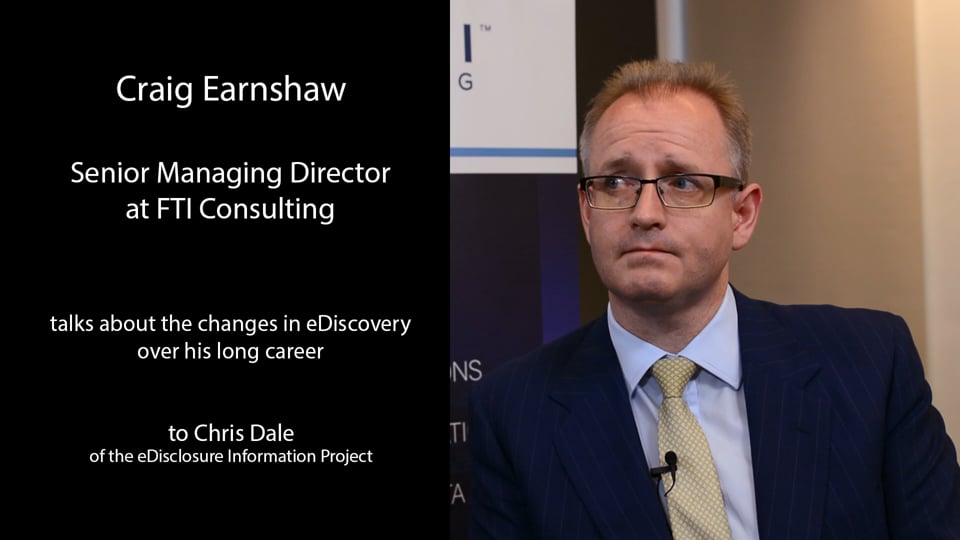Interview: Craig Earnshaw of FTI Consulting on changes in eDiscovery over his long career
https://www.ispeech.org
Craig Earnshaw, Senior Managing Director at FTI Consulting, has been working in FTI's Technology segment for 10 years and had already spent ten years in the then-nascent eDiscovery and Computer Forensics world before that.
I thought it would be interesting to interview him about the changes which he has seen over that time. The resulting video interview is below.
Craig identifies three main changes in his time in eDiscovery. One is what he calls the "frequency of requirement" – the increasing need to look at data on a computer system for any disputes/investigations exercise.
Second, he points to a rise in the number of lawyers who understand and practice in areas which require a knowledge of eDiscovery practice.
Third, Craig points to the range and diversity of companies delivering software and services to corporations and law firms.
Beyond these specific points, there is an increasing requirement for pre-emptive actions which depend on eDiscovery skills and tools. The identification of data – the scope of the data you hold, and the risk and value within it – forms an increasing part of FTI’s work.
The principal change on the technology side, Craig Earnshaw says, came with the advent of proper eDiscovery platforms. When he started, disk editors were used for extracting data from the (then very small) hard drives, and documents were largely reviewed in the tools which created them – Word documents in Word, spreadsheets in Excel and so on. Now we have sophisticated tools like predictive coding and document clustering which enable the lawyers to cut quickly through the ever-increasing volumes of data.
There has been an interesting change in how organisations manage eDiscovery, Craig Earnshaw says. Originally they did much of it themselves but, as it became more technical, they outsourced it to others. As law firms became more comfortable with the concepts, they began to take more technical work in-house, but a yet further increasing complexity is now causing them to send it out again. There are better external resources now, with the rise of companies offering legal process outsourcing, especially efficient review services.
Craig Earnshaw points out that data types, and the means of creating and storing documents, have changed. A company's data is no longer within its four walls but includes instant messaging and other cloud-based communications and documents. Today, a corporation may not know where its data is stored and this is often controlled by others.
This, Craig Earnshaw says, leads to a requirement to undertake data mapping exercises so that companies can keep track of what they possess, and not just for disputes management purposes. Just as forensics has moved on from being something done by crime investigators to being part of civil eDiscovery, so eDiscovery skills and tools have extended from being an adjunct to civil litigation; they are required retrospectively as a component of regulatory and internal investigations, and they are increasingly used as pre-emptive weapons to test compliance and to identify areas of both risk and value in corporate data. The new frontiers are cyber security and the General Data Protection Regulation, both of which require companies to know what they possess and to identify critical data.
FTI is heavily involved in both these areas as well as in the roles in which Craig Earnshaw first gained his experience all those years ago. The interview ends with a summary by Craig of what the future looks like.
source








Gloss